

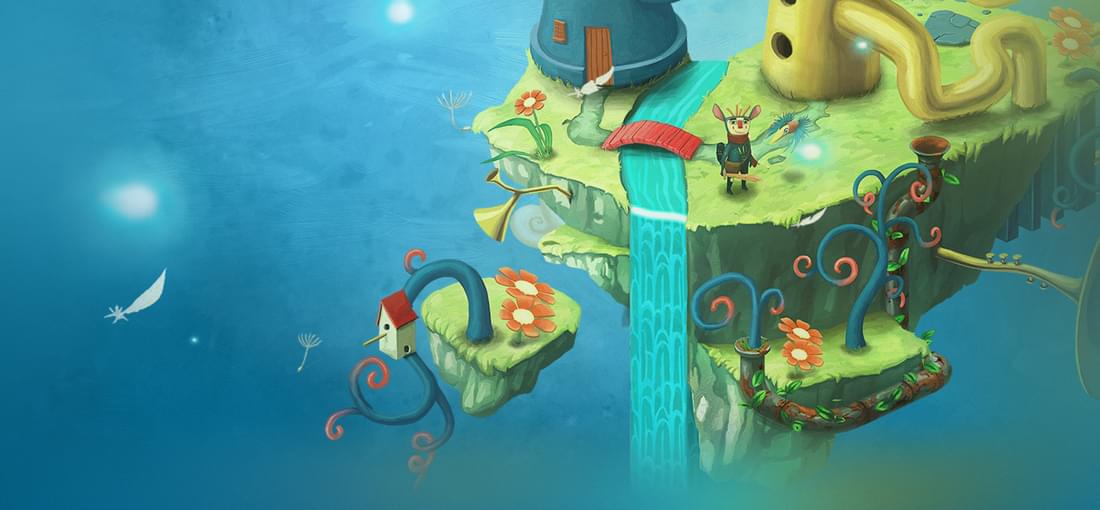
Who is this game for? Is it supposed to be flowing, or tedious? It feels way to easy for an adult, and way to sophisticated for a child. Yet the story is so ... I don't even think I have the right vocabulary for it: not exactly dark (even though the intro suggest a car crash), not exactly complex (after the 1st chunk I can say the story is really straightforward, but with "long words" used as names for things: dopamine, neurons...), not exactly chaotic (but who is the villain, for reals?), not exactly mysterious (but we play in the mind of the adult, or the kid?). It's... not for me, and I can't really guess who is this for.
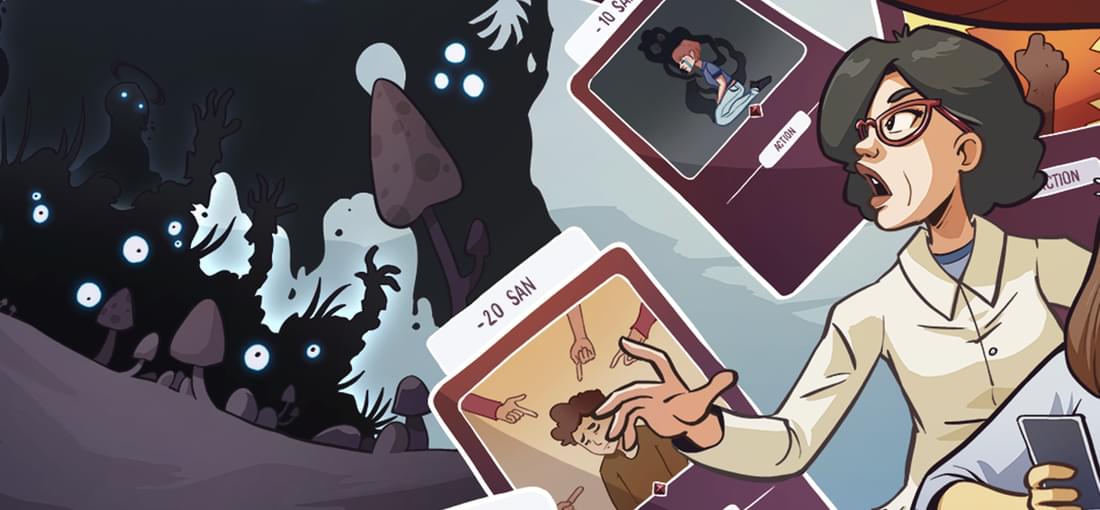
The game collects anonymous statistics about who-knows-what for who-knows-who by default. I was offered a native linux version that works on Ubuntu 22.04, even though the description says it's windows-only. Don't expect too much psychology and story in the game. Lower your expectations. Now lower them again. Lower them a bit more. I got very strong feeling of "one deckbuilder with permadeath, it in the phobias bag" store shopping list entry. All the enemies you'll fight in the game are some kind of phobias, but I didn't see one label with what is the scary "substance" in the phobia. Agoraphobia. Err... Heights? Agriculture? Tractors? Your guess is probably better than mine. The cards and stats are also themed in (dealing with) phobias colour, But the game makes you I-agree a warning about the risks you take while playing the game. Your mileage may obviously wary, but it only made me disappointed by following lack of depth in the topic of psychology. Unlike Eliza (talking about games in psychology dept.), Neurodeck will not make you ask questions. Yes, the game has light RPG traits present. You get to choose some perks that will influence your play-style, but with RPG I expect at least some story development, and the game offers none. Sometimes you'll be able to read a bit from your avatar's diary (you do it, no voice-over), But why does the person suffer from whatever-phobia? *crickets* The game lacks a manual or glossary. You'll get "tutored" on the very basics of the game, but most of the time you're on your own. The card will get `faded` after use. What does it mean? *crickets* And I'm quite confident I saw a "your/you're" type typo in there.
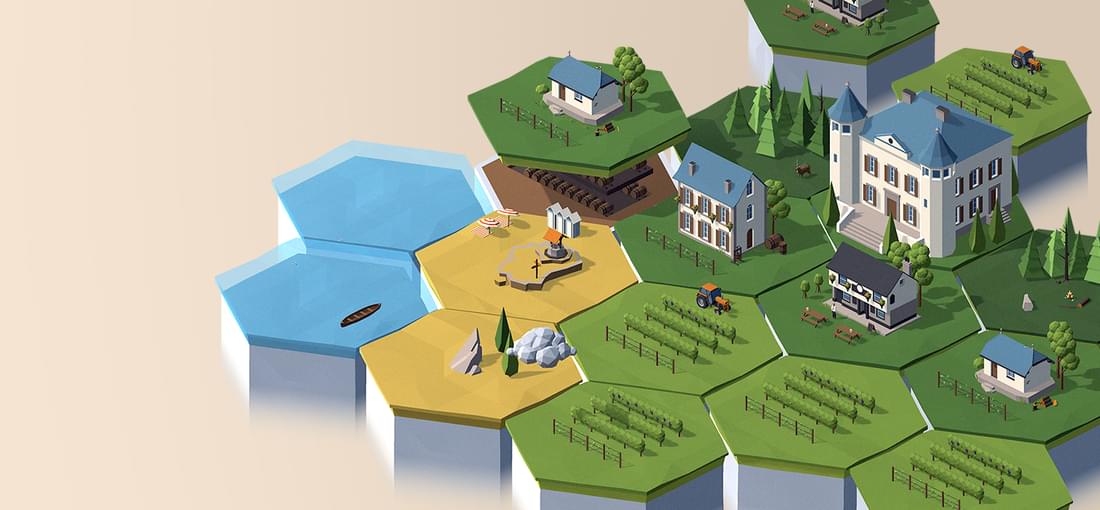
Winemaking... alright. Each wine is scored in four different characteristics, and you get the numerical values of all, and the game gives you equations on how to manage them through wine processing, and there is almost zero automation on that. Fermentation is timed and limited to 2 months, but ageing has no timer like "bottle the wine after X months". You simply have to remember that and count along. Processing the wine is done in step-by-step wizard dialogs, but if you have more than one variety of grapes, each gets it's own tab, and can be quite easily forgotten. The game won't pre-select even the only possible choice, leaving you with having to select the only real selection available. So much for useless micromanagement. But thare's only one "harvest" option, without possibility to harvest per variety. So much for useful micromanagement. Given plenty issues like those, cosmetic things like day-and-night cycle (where each day is approx. a game month long and only affects map visibility... not in a good way) aren't the things that drove the rating down for me. The idea of the game is good! Spend some love on the controls. Throw in some more options like "Weather and climate", [Harvest variety]/[Harvest all] buttons Tip: UI was too unintuitive and arbitrary.
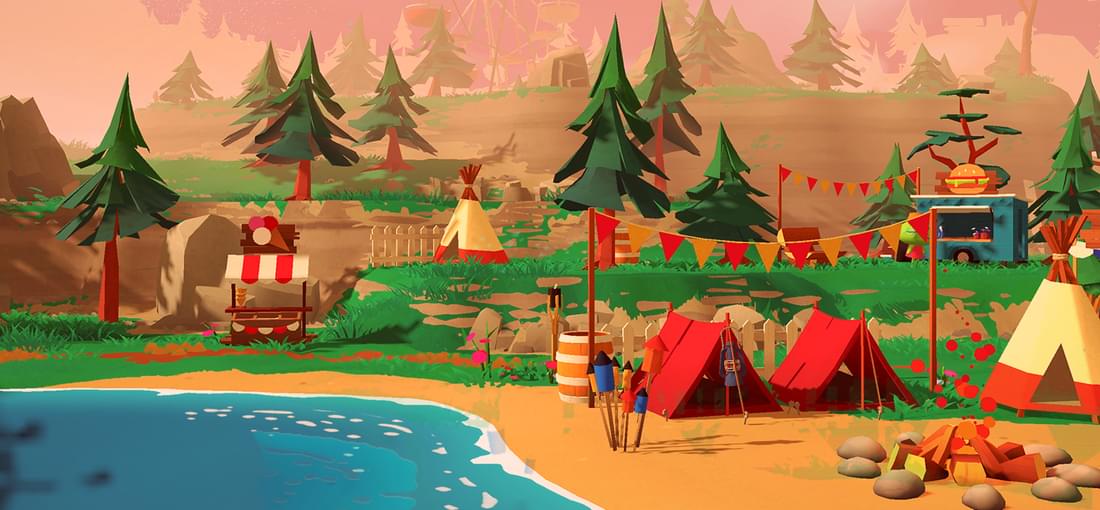
Once upon a time, there was a world where all beings were nice to each other, where it wasn't possible to take a wrong turn and where friends were a constant. Yes, the story is straightforward and without twists. Yes, there isn't much of a gameplay. The 2-4 hours are a reasonable guess for how long this game might entertain you. Yes, the game is not without it's pains. But it'll constantly remind you of rainbows and unicorns. "You're doing good and I'm proud of you." You'll spend lot of time going from one place to other and the game camera view is not of the best: it's fixed, and your character will be frequently hidden under trees or rocks or mountains. You'll need to collect resources and your inventory size is quite limited, given how different resources are spent. You will mind all of that. But you'll also spend some hours in a world way more positive than the real thing. It might be just worth it.

Beehive is a complex organism - single bee, on the other hand, is not. Gameplay reflects that. Simple, straightforward, dare I say easy. The tasks are indeed a bit repetitive, flying from place to place tends to get long and if you do side quests (recommended), your main story might reset a step or two back. But overall, all of those can be overlooked very easily, if you aim to switch your brain off and just enjoy the flight.
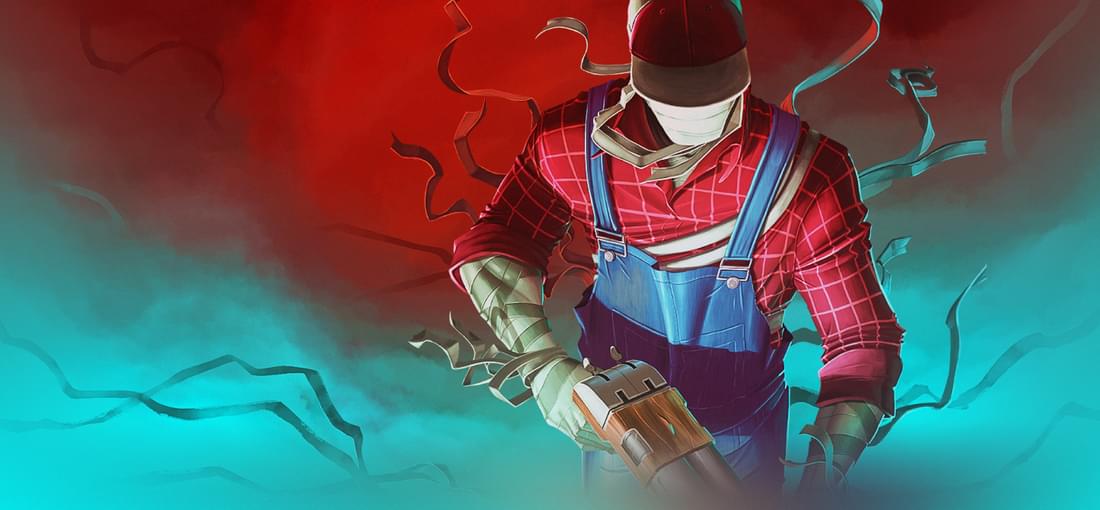
Way too much RNG for my taste. If you get unlucky, you die, and you will get unlucky. This is the sprint-and-shoot-and-sprint-again type of shooter. Unlucky means "you lose your crosshair" and "you can't stay still". Ammo is fairly limited, enemies are numerous, every missed bullet will hurt you soon. Room layout isn't your friend - the game at all is very hostile, it won't care if you die or live. I was kind of able to progress - earn gold and advance the talent tree, but I didn't see any improvement in my lifetime in combat. The player character cursing and having "witty" comments didn't suit me either. To top the experience, respawn animation is quite lengthy, and I got fed up with it really fast. Overall, this is the kind of game you either love or hate. I happen to fall into "hate" party.
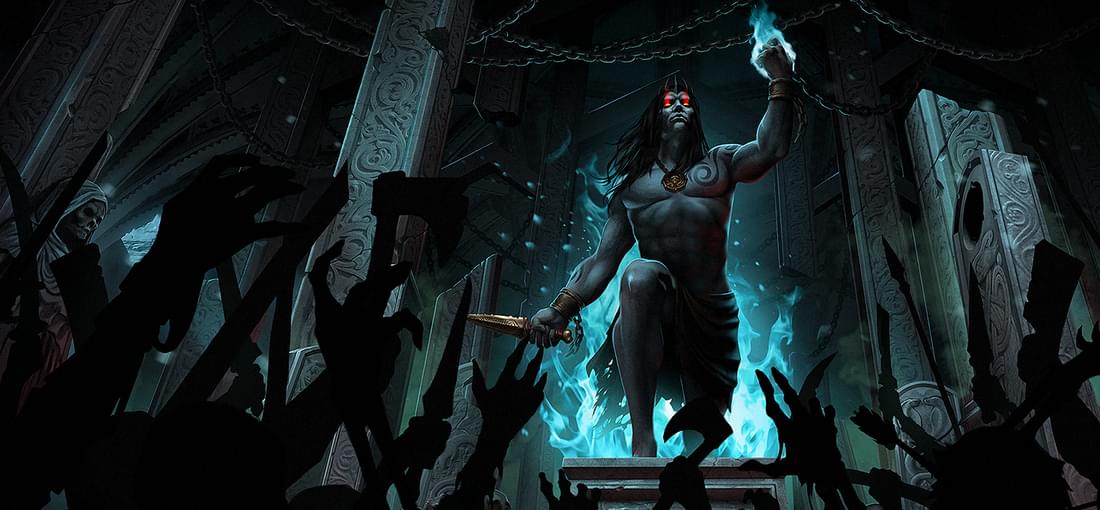
Iratus hit just The Spot for me. You get to be the evil guy here, fine balance between thinking and RNG, a bit of equip management, move-based combat, de/buff removal abilities... Fairly complex set of variables, but still in manageable size. You don't need a spreadsheet to play, but if you want to be perfect, you'll benefit from one. You choose your way through the dungeon. Between combats, there's a base you benefit from: your minions can spend the "combat time" healing or studying. Don't get too attached, though. Your minions will die, sometimes even from one-shot. It will hurt, mainly in later stages of the game, when you invested some quality materials into your mobs. There's an option to instantly level-up your new creations through brain usage, so you'll only have the expected amount of troubles. The downs of Iratus are mostly of cosmetic nature: lengthy animations (intro, combat moves...), sometimes hectic UI (when more enemies move in a row, you don't get to inspect their buffs, e.g.) and ugh, unlockable mobs. You'll only have "basic" mobs available from the beginning, and you must perform certain actions to unlock new - such as collecting resources, dealing certain types of damage etc. This kind of progression through content is in my eyes way too much mobile-microtransactions-y. But the limits are not extreme in any kind. If you'll want to unlock all, you totally* can (*: additional purchases may be needed), if you don't want, you'll enjoy the game with what you found on the way.
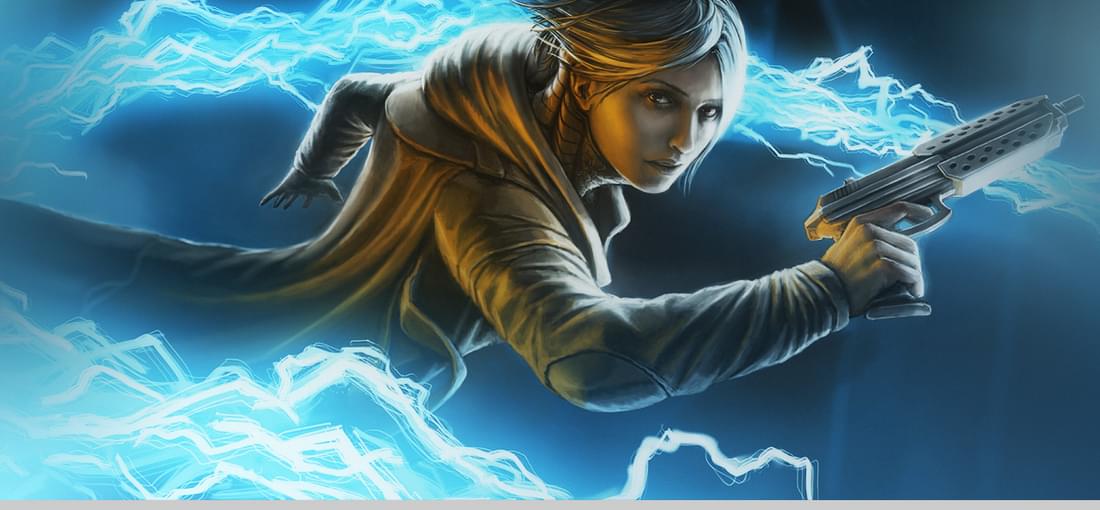
Dex is a strange mix of 2D platformer - rolling shooter - proper RPG and, for me, story teller. The plot is pretty standard for a cyberpunk game. Default Evil Corp ltd. vs. Hackers of the People. Evil Guys have a Cunning Plan and this is where the heroine comes in. Dex can connect to augmented reality wireless. As you've probably guessed, hacking and AR will be integral for the story. Hacking stuff is really fun in this game. Unlike some other titles, Dex's devs didn't try to mimic real world (which usually ends badly) and instead gave us completely separated "minigame" mechanic: Dex's AR alter ego is free to roam in the AR world, dodging programs-enemies and shooting them. You'll encounter black holes (creating gravity), firewalls (ouch) and plain old traps. Kind of a tower-defense, from the point of the attacker. Neat! The English voiceover is fine and Czech subtitles are translated using Czech names, jokes and events - having little skills in other languages I can only hope other they received the same amount of care, because it'd be shame to suffer from word-to-word translations. The only major downside I see in Dex is the game lacks some kind of "middle" difficulty, since the "hard" one can be - at least in the very beginning - really unforgiving. It really depends which augmentations you buy at what stage of the game, but luckily you'll get somewhat guided by the quests and the rest can be fixed with in-game credits, not by having to load an earlier save. That being said, _do_ save often, since some of the death traps are not really obvious. It took me 15-20 hours to complete my playthrough, and I'm on the explorative edge of playstyle. The story is pretty much linear with the edge choices (help person A or B) having trivial impact on the main story. The fights and hacking are fun enough to drive me through the game, but not enough for me to replay within a year. But within two? Likely.

I'm not into visual novels. Or, up to Eliza, I was sure I wasn't. This game doesn't bring game play nor ideas - it brings Question, and a big one: what makes human intelligence humane and intelligent? Evelyn, player character, feels very relatable. We've all been there - alone, lonely, struggling, not daring to hope. As if she was a NPC in her own life. In a joke of cosmic irony, she finally settles in a job, where every word she says is written by a giant AI system. Which she is the co-author of. Player choices are very limited, and I would mind it elsewhere, but in Eliza - given the job Evelyn has - single-choice dialogs (which effectively are zero-choice) are surprisingly on theme. The setup overall is very immersive. Particularly voice acting (in English) really stands out! Lovely voices. It is very easy to lose track of time, and that lead me to think there's not much content in the story. Seven chapters - six of which are story, last one being "conclusion" - do take up 5-6hrs. The one thing you can really influence is the conclusion chapter. Otherwise the story happens very linearly. As such, I'll let Eliza rest on my shelf for a year or three - I *might* replay it then, to again answer all the questions it presented me, but this year, it doesn't make sense to me to play more. Except for the solitaire, perhaps. If visual novels are not your genre, Eliza might change your view. I value Eliza really high, and will start checking visual novels in the future.
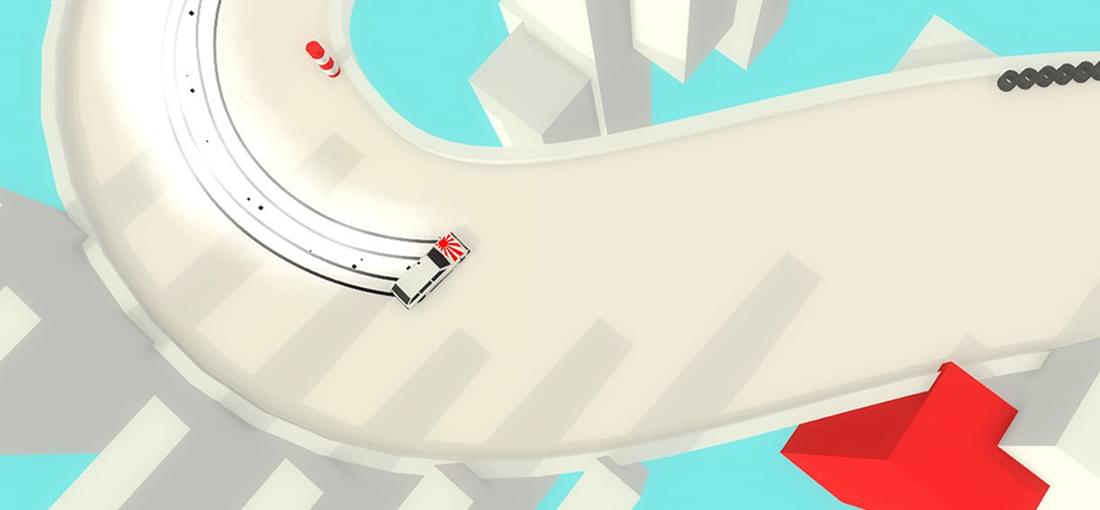
Reviewed based on keyboard play. This game is built upon drifting, and if you can't, you'll not enjoy yourself very much. I've given it few attempts on various difficulty settings and without a controller over few days, and my verdict is short: unplayable on a keyboard. It seems to me that all the difficulty changes is how slippery the surface is. Since the easiest is the most difficult to slide on, it also obstacles your primary target: drifting. The "tutorial" is not tutoring you _at all_. Do this and that, the game says. But how? you ask. How the F am I supposed to know? (the game, probably). The keybinds are arrow-based, which will probably feel weird at best (at worst, you'll have no skill in your right hand), and there is no remapping possible. Do not buy if you plan to play on keyboard.